Disclosure: This post contains affiliate links, which means if you purchase something through my link, I will earn a small commission. This does not affect the price you pay for the item. I only advertise products that I have used myself and would genuinely recommend.
Our immune system is responsible for fighting off illnesses and keeping us healthy. Maintaining a strong immune system is always important, but even more so at this time when we are faced with the COVID-19 pandemic. Here are 10 natural ways to boost your immune system at home.
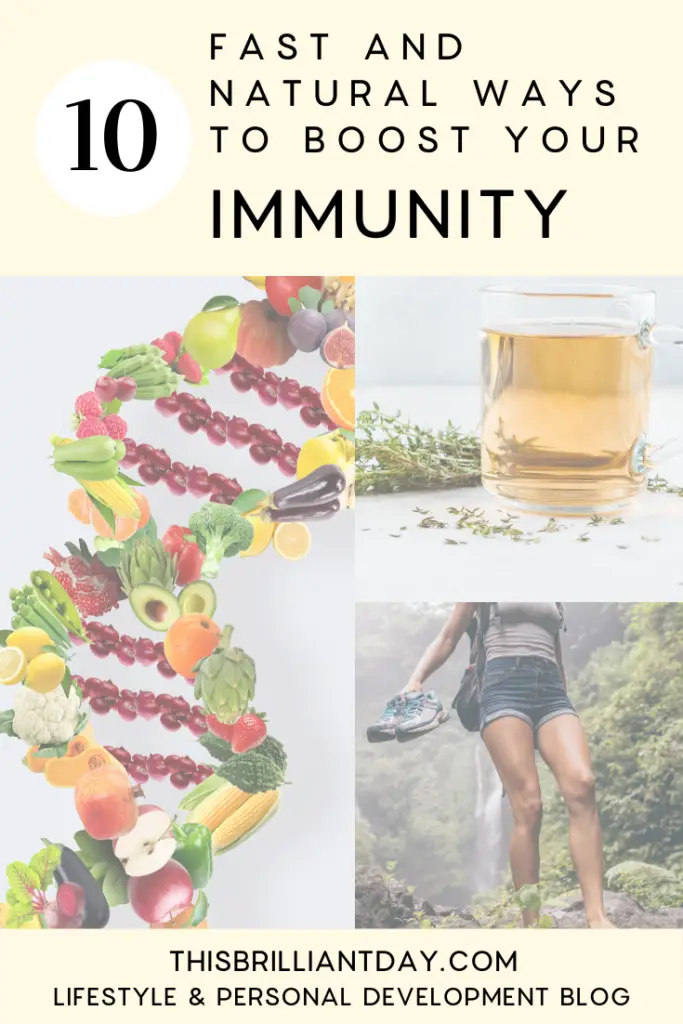
How to Boost Your Immune System
1. Eat Immune-Boosting Foods
This is one of the more obvious ways to boost your immune system. A healthy diet is of utmost importance for keeping you healthy, and the main aim should be to include plenty of fresh fruits and vegetables in your diet. However, there are certain foods that can be especially helpful for immunity.
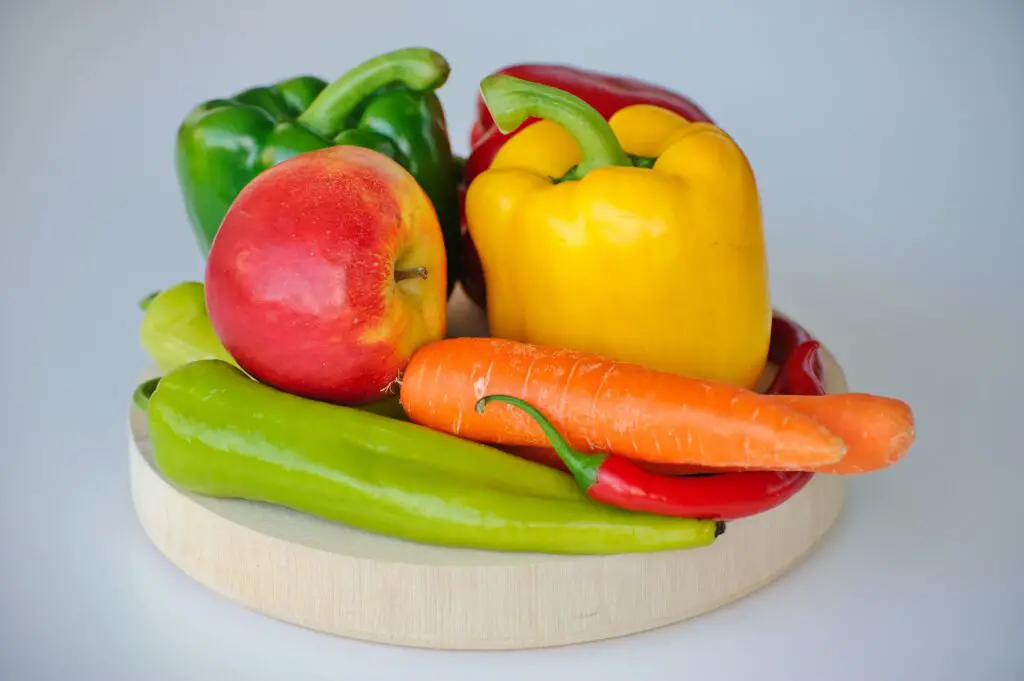
Which foods increase immunity?
- Citrus fruits, such as oranges, lemons, limes and grapefruit.
- Garlic
- Red peppers
- Broccoli
- Spinach
- Sweet potato
- Berries
- Mushrooms
- Almonds
2. Reduce Stress
We all know that stress is bad for us, but how does stress affect the immune system? Last year I watched a documentary about cancer which covered the topic of the immune system. I learned that our immune system requires a lot of energy to function properly. When we are stressed, most of our energy goes to our adrenal system, so our immune system ends up being compromised. Furthermore, our ‘stress hormone’ cortisol has a suppressive effect on the immune system, leaving our bodies more susceptible to infections.
For some ideas on how to reduce stress, have a look at my post on unique self-care ideas.
3. Power Posing
I recently watched a fantastic talk on YouTube by Amy Cuddy about power poses and the effect our body language can have on our confidence and state of mind. In a nutshell, a power pose is any position where our body is open and taking up space, rather than closed in. For example, standing tall with our hands on our hips. I really recommend watching Amy’s talk, especially if you want to boost your confidence.

How does power posing affect our immune system?
You might be wondering what power posing has to do with immunity. In her talk, Amy describes a study in which the participants’ testosterone and cortisol levels were measured before and after adopting a pose for two minutes. Half of the participants were asked to adopt a ‘power pose’, and the other half were asked to adopt a closed-up, ‘powerless’ pose. The ‘power posers’ had significantly lower levels of cortisol after only two minutes in that pose, whereas the ‘powerless posers’ had increased levels of cortisol.
Although Amy doesn’t directly mention the immune system in her talk, we have already learned that cortisol suppresses the immune system. If power posing lowers our cortisol levels, this will, in turn, help our immune system to function properly.
4. Take Vitamins and Minerals
Vitamin and mineral supplements are another well-known way to boost your immune system. There are so many different supplements out there, but which are best for immunity?

What vitamins and minerals help your immune system?
Vitamin C
This vitamin plays a huge role in immune health. It is found in many of the immune-boosting foods mentioned above, but you can also take supplementary vitamin C for an extra boost.
Magnesium
The best way to take magnesium is by applying magnesium oil to your skin because this mineral is absorbed better through the skin than through the digestive system. I currently use BetterYou Magnesium Gel. You can also take a bath containing Epsom Salts. This is not normal salt – it is made up of magnesium, sulphur and oxygen. By bathing in Epsom Salts, the magnesium will get absorbed into your skin.
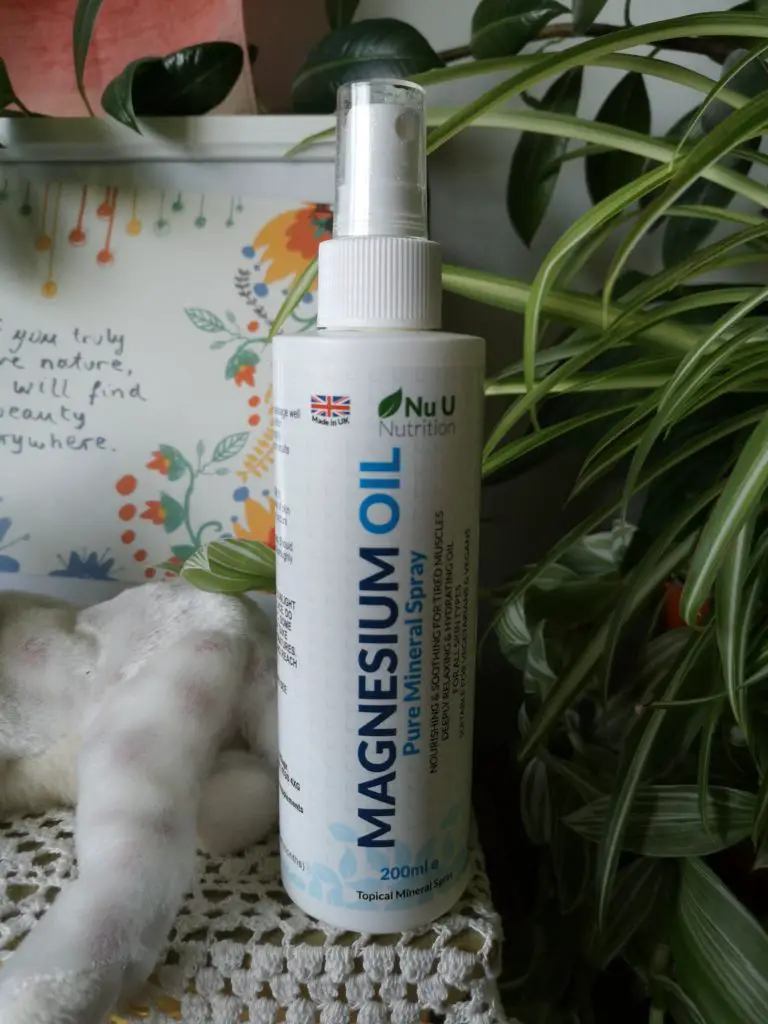
Vitamin B6
This vitamin helps the immune system to function effectively by increasing the production of white blood cells. Sources of vitamin B6 include potatoes, chickpeas and bananas, as well as vitamin supplements.
Vitamin E
This is an antioxidant and helps the body to fight off infections. Good sources of vitamin E are nuts, seeds and spinach. You can also take vitamin E supplements, but this is not usually recommended as it could possibly be unsafe in high doses. As long as you have a healthy diet, you should be getting enough vitamin E.
Vitamin D
Studies have shown that vitamin D may help activate the ’T cells’ of the immune system so that they are primed to fight infection. Our main source of vitamin D is from sunlight, but you can also take it in supplements or in fortified foods.
Zinc
Zinc supports the immune system by activating enzymes that break down the proteins in bacteria and viruses. Whole grains, beans, chickpeas and nuts are good sources of zinc, or you can also take a supplement.
Selenium
This is an antioxidant that reduces inflammation in the body and helps to speed up our immune response. We only need a small amount of selenium each day, and some of the best sources are brazil nuts, sunflower seeds and mushrooms.
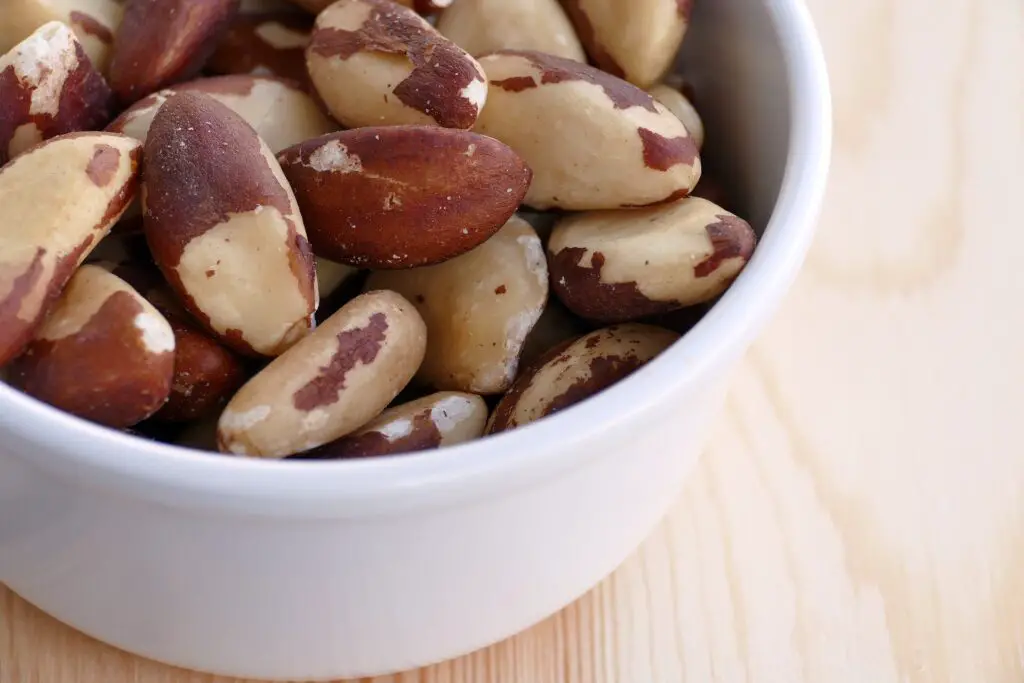
Surprisingly, just one brazil nut can contain up to 288% of your recommended daily allowance of selenium! (The exact amount varies depending on the region where the brazil nut was grown.) Therefore it is not recommended to eat too many brazil nuts at once because that can lead to an overdose of selenium, known as selenium toxicity.
What are T Cells?
As I have mentioned T cells in several places in this post, I will explain what they are. T cells are a type of white blood cell that are essential to the immune system. They are made in the bone marrow and mature in the thymus gland. There are different types of T cells and they have many roles including:
- Recognising foreign antigens
- Killing cells that have been infected by a virus
- Activating other immune cells
- Helping to produce antibodies
- Providing the immune system with memory about past infections
5. Oil Pulling
Oil pulling is a traditional remedy that involves swishing vegetable oil around in your mouth. The oil is able to get into the gaps and crevices between your teeth and supposedly picks up germs and toxins, which you then spit out with the oil. By removing these germs before they spread throughout the body, we reduce stress on the immune system.
There is debate on whether oil pulling actually works or not, but from my experience, I have had fewer colds and illnesses when I oil pull, and the ones I have had have been milder. Therefore I think it’s worth a try – there’s nothing to lose other than the cost of a bottle of vegetable oil!
6. Thymus Tapping
The Thymus gland is situated in the middle of our chest, behind our breastbone. Its main function is to help with the maturation of ’T cells’, which are crucial to the immune system. Interestingly, this gland is most active during childhood, and its function gradually reduces throughout life in a process called thymic involution. This is part of the reason why elderly people have a harder time fighting off infections!

You can stimulate the thymus gland by tapping, thumping or massaging the middle of your chest. This can boost your immune system. Maybe it could even slow down thymic involution, but that is only speculation as I cannot find a source of information that says so!
7. Get Plenty of Sleep
Studies have shown that sleep is closely linked with the functioning of our immune system. A good night’s sleep can boost the effectiveness of our T cells. Aim to get at least 7 hours of sleep every night, ideally 8. Children and teenagers need even more sleep – 9 or more hours depending on their age.
Ideally, it’s best to go to bed before midnight, because the early hours of the night are when your brain moves into deep (non-REM) sleep at a higher ratio. No matter what time you go to bed, from the early hours of the morning your sleep will be dominated by lighter, REM sleep which is less restorative.
If you have trouble falling asleep at night, have a look at my tips for getting to sleep.

Are naps good for your immune system?
If you struggle to get 7 or more hours of sleep at night, napping could be a good way to catch up on sleep and boost your immune system. Personally, I rarely take naps because I find that they make me feel groggy afterwards. But a 2015 study showed that napping can decrease the levels of inflammatory molecules and stress hormones in our bodies.
8. Exercise Regularly
Exercise is so good for our physical and mental health, but did you know it can boost your immune system too? I read an amazing book called ‘Spark: How exercise will improve the performance of your brain’, and I will quote a passage from it here:
‘Stress and age depress the immune response, and exercise strengthens it directly in two important ways. First, even moderate activity levels rally the immune system’s antibodies and lymphocytes, which you probably know as T cells. … Second, part of the immune system’s job is to activate cells that fix damaged tissue. When it’s out of whack, these damaged spots fester, and you’re left with chronic inflammation. … Exercise brings the immune system back into equilibrium so it can stop inflammation and combat disease.’
‘Spark: How exercise will improve the performance of your brain’ by John J. Ratey and Eric Hagerman
Exercise doesn’t have to be a chore. Have a look at these ways to get more exercise into your daily life without putting in extra time!
9. Grounding or Earthing
Grounding, also known as earthing, means being in direct physical contact with the Earth. The main way to achieve this is by walking barefoot outside, on grass, sand or any conductive material. The theory is that grounding balances the electrical charges in the body and this has many health benefits including regulating the immune system. It may sound far-fetched but studies have indicated that grounding really does have an effect! Either way, it feels nice to walk barefoot outdoors so why not give it a go?
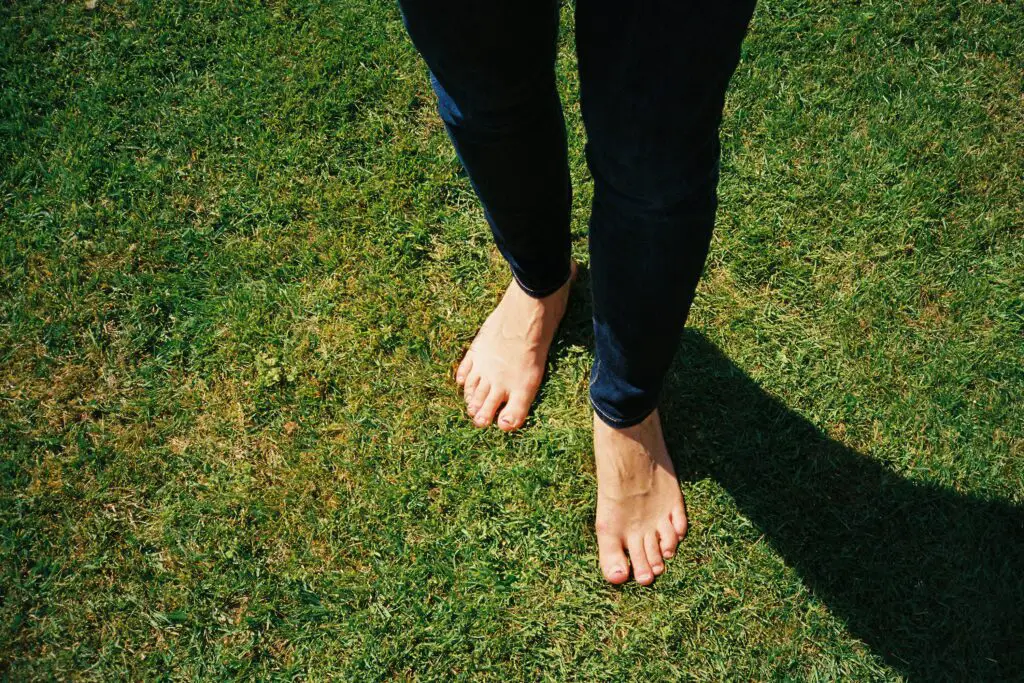
10. Herbs and Spices
You can use herbs and spices as home remedies to boost your immune system. Many can be eaten fresh by incorporating them into your meals. Others are available as herbal teas or supplements. The following herbs and spices are especially good for your immune system:
- Ashwagandha
- Turmeric
- Cinnamon
- Ginger
- Echinacea
- Elderberry
- Cayenne pepper
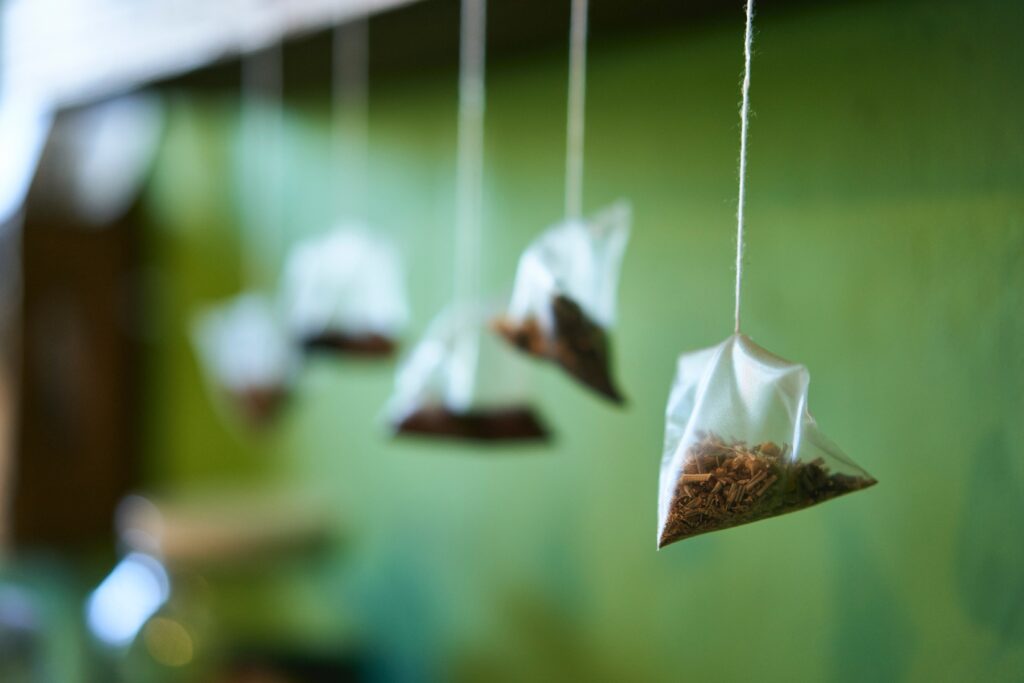
There you have it – 10 Natural Ways to Boost Your Immune System
These tips will help you to strengthen your immune system against viruses and other illnesses. However, if you are unlucky enough to already have a cold or similar illness, check out my tips for how to fight off a cold.
Do you know any other ways to boost your immune system? Let me know in the comments!

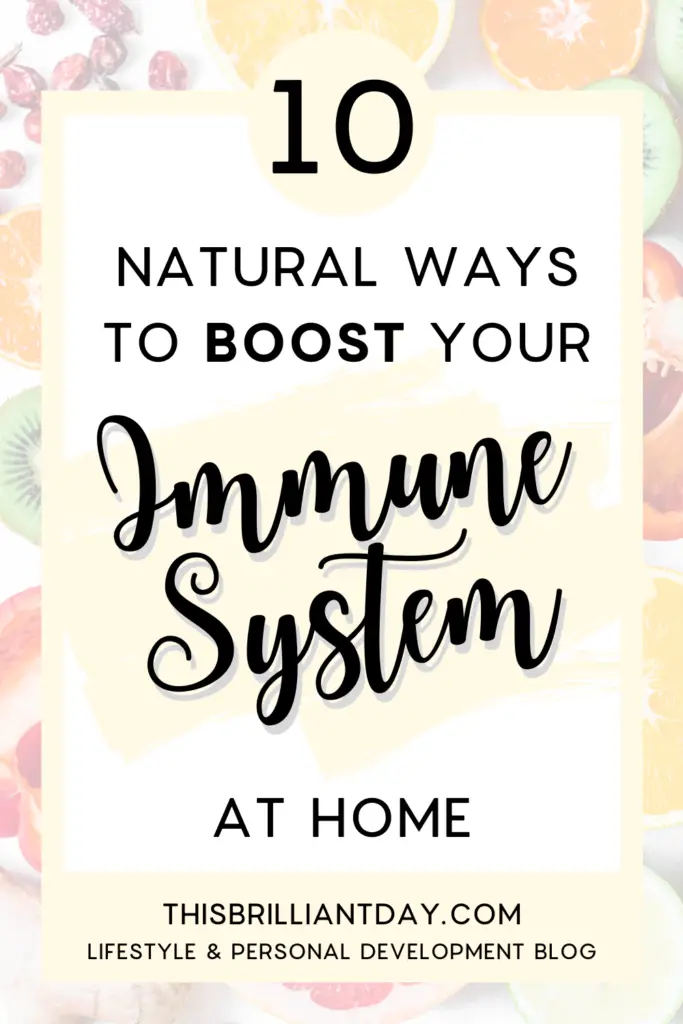

Very interesting and informative post 🙏
Thank you for reading, I’m glad you found it helpful!
Great tips!! I love the idea of grounding. I never wore shoes when I was little and I always loved how the earth felt underneath my feet. Thanks for reminding me of that! I’m going to start walking around my yard with no shoes now!
Thank you! I also love the feeling of how the earth feels under my feet, and it’s cool to know that there is a reason for that! Enjoy your barefoot walks 😊
My immune system SUCKS and one of my 2020 goals was actually to start trying to improve it. I’ll be honest with you, I had completely forgotten that it was one of my new years resolutions until I saw this post so thank you!! I will definitely be taking some of these tips on board x
Roni | myelevatedexistence.com
I’m so glad that this post reminded you of your goal, and I hope these tips help you! x